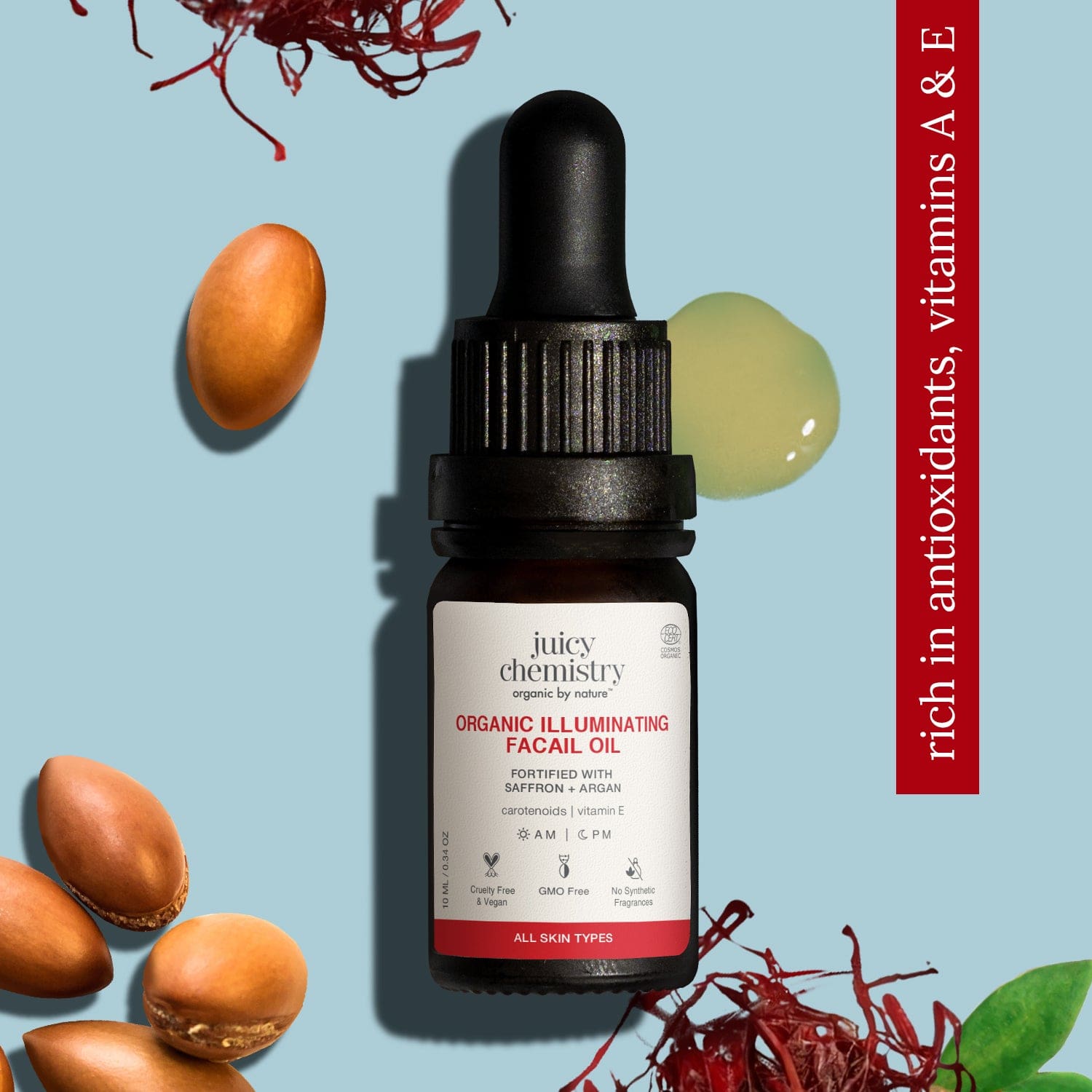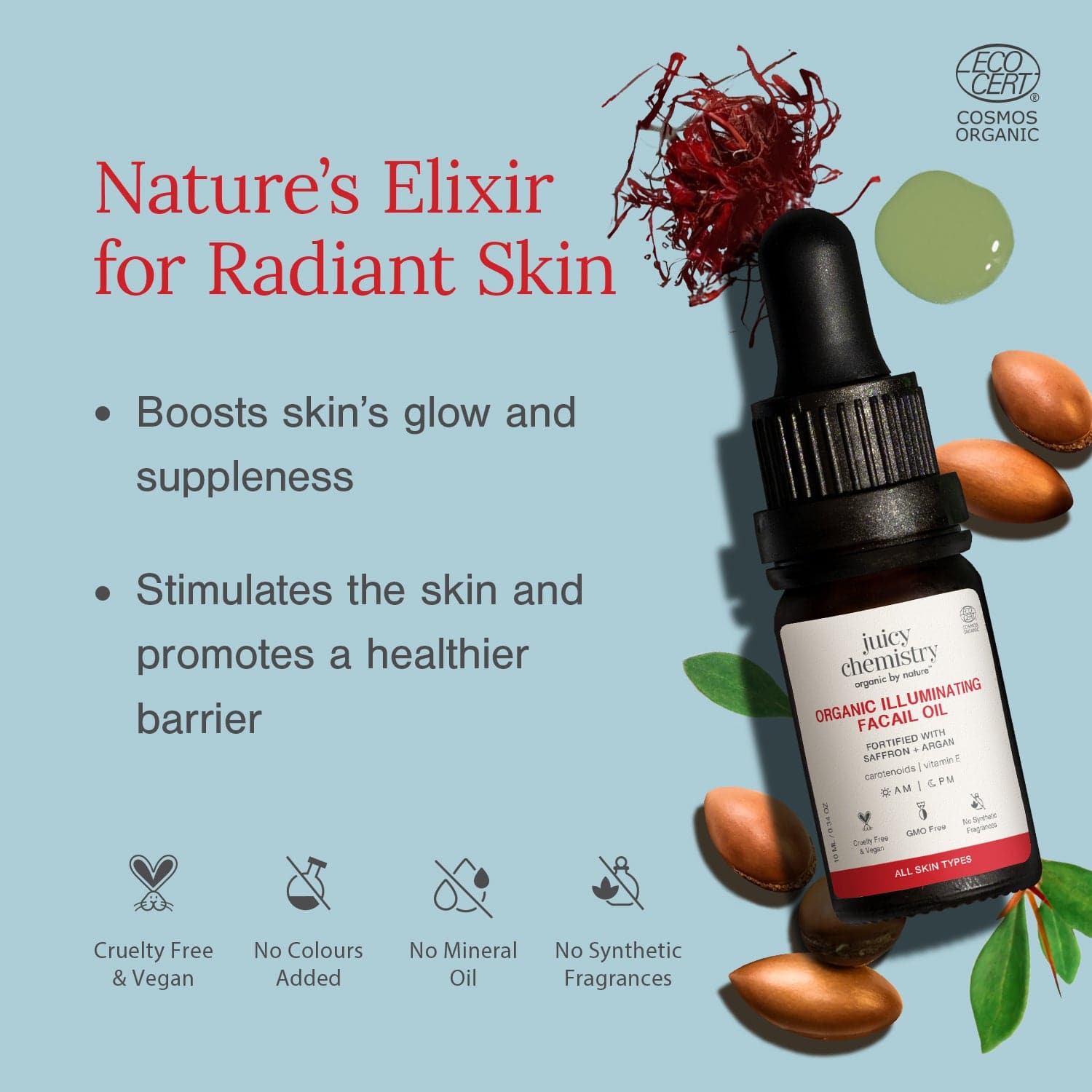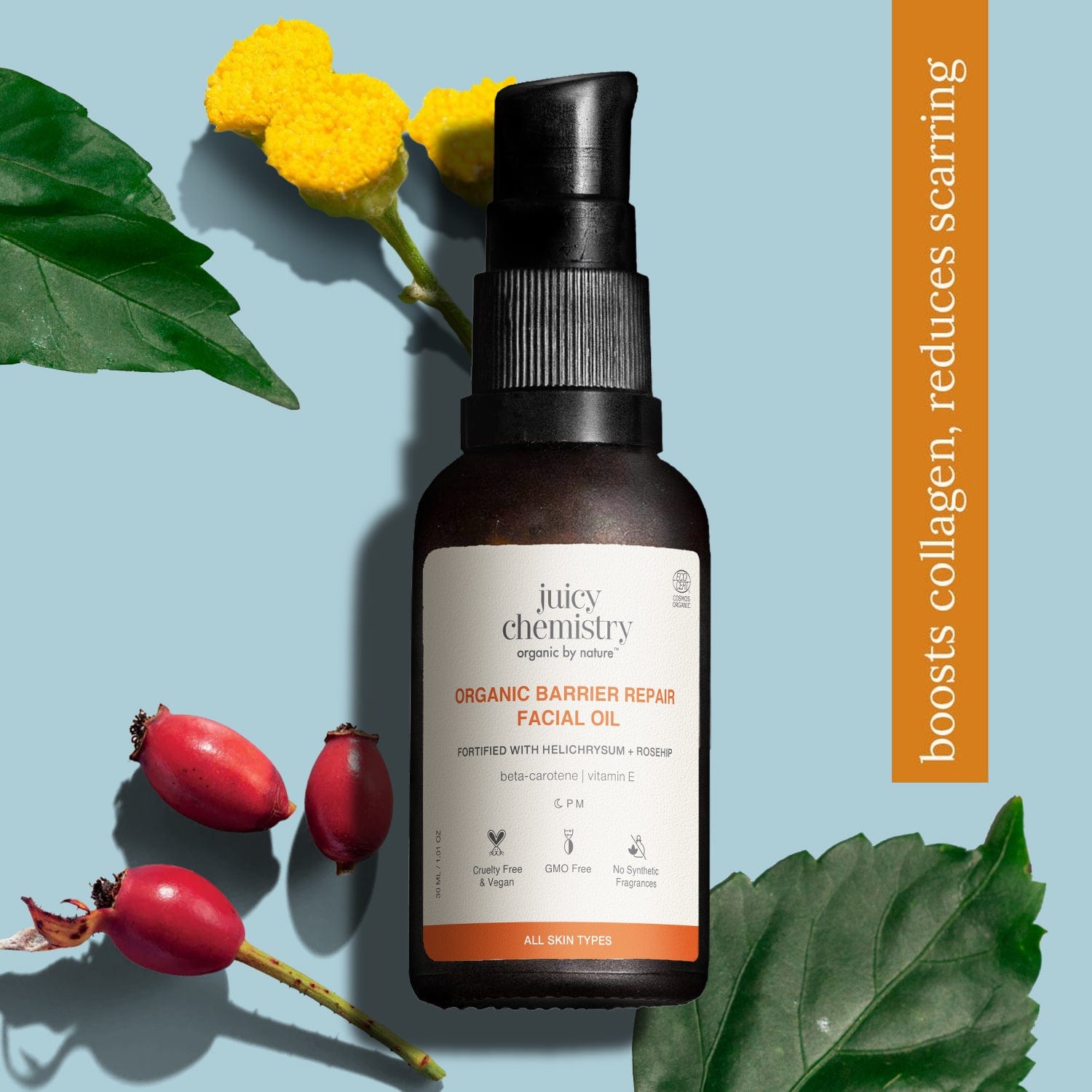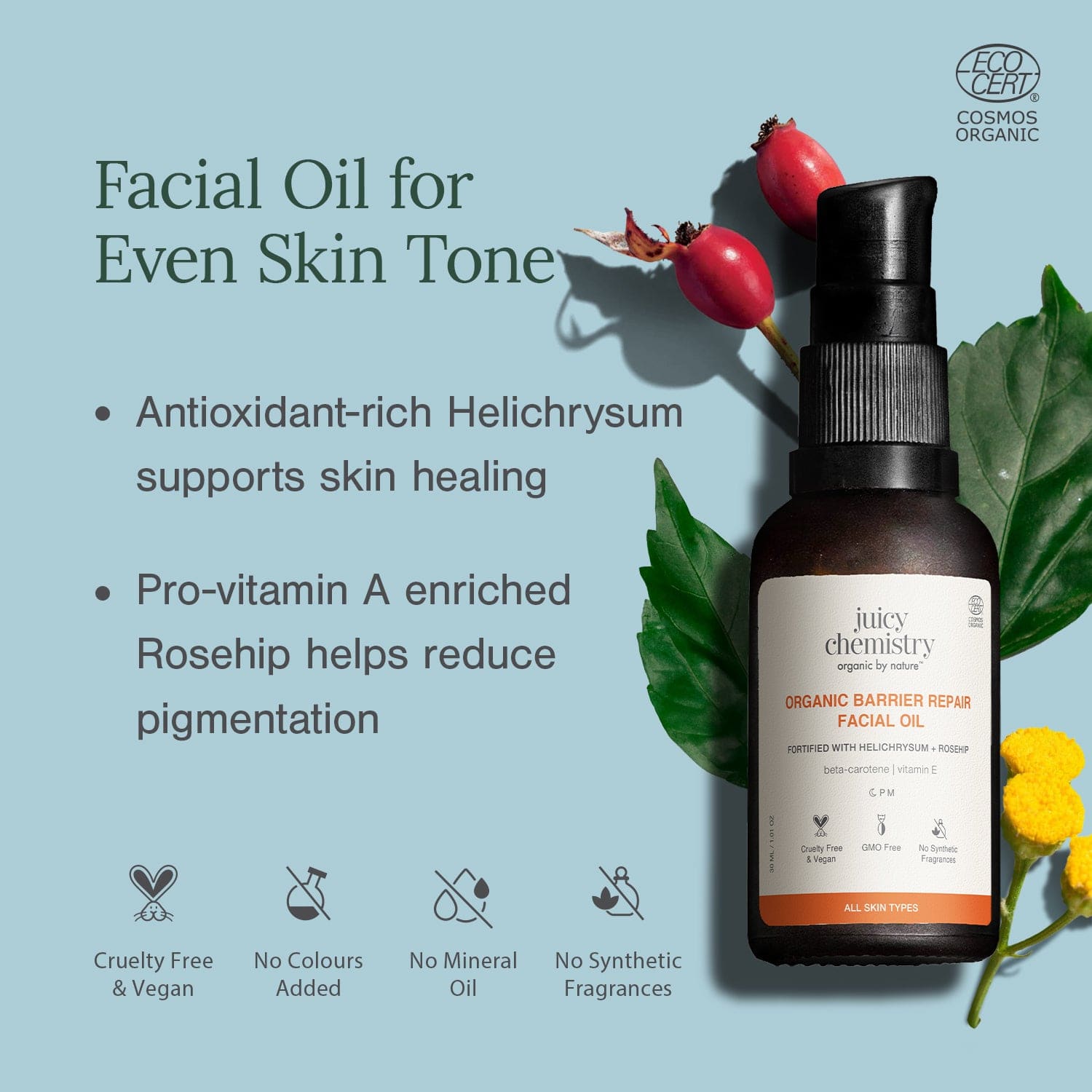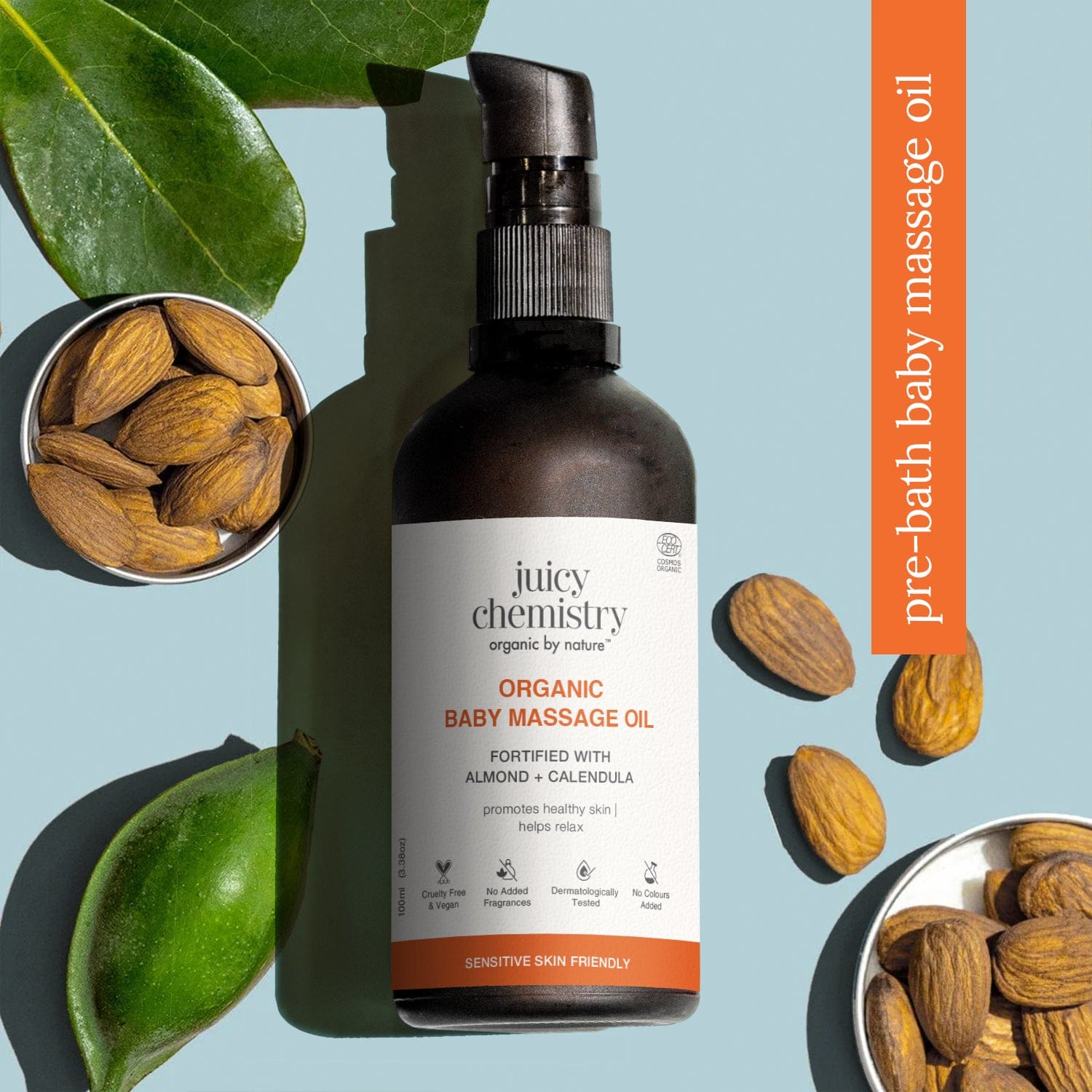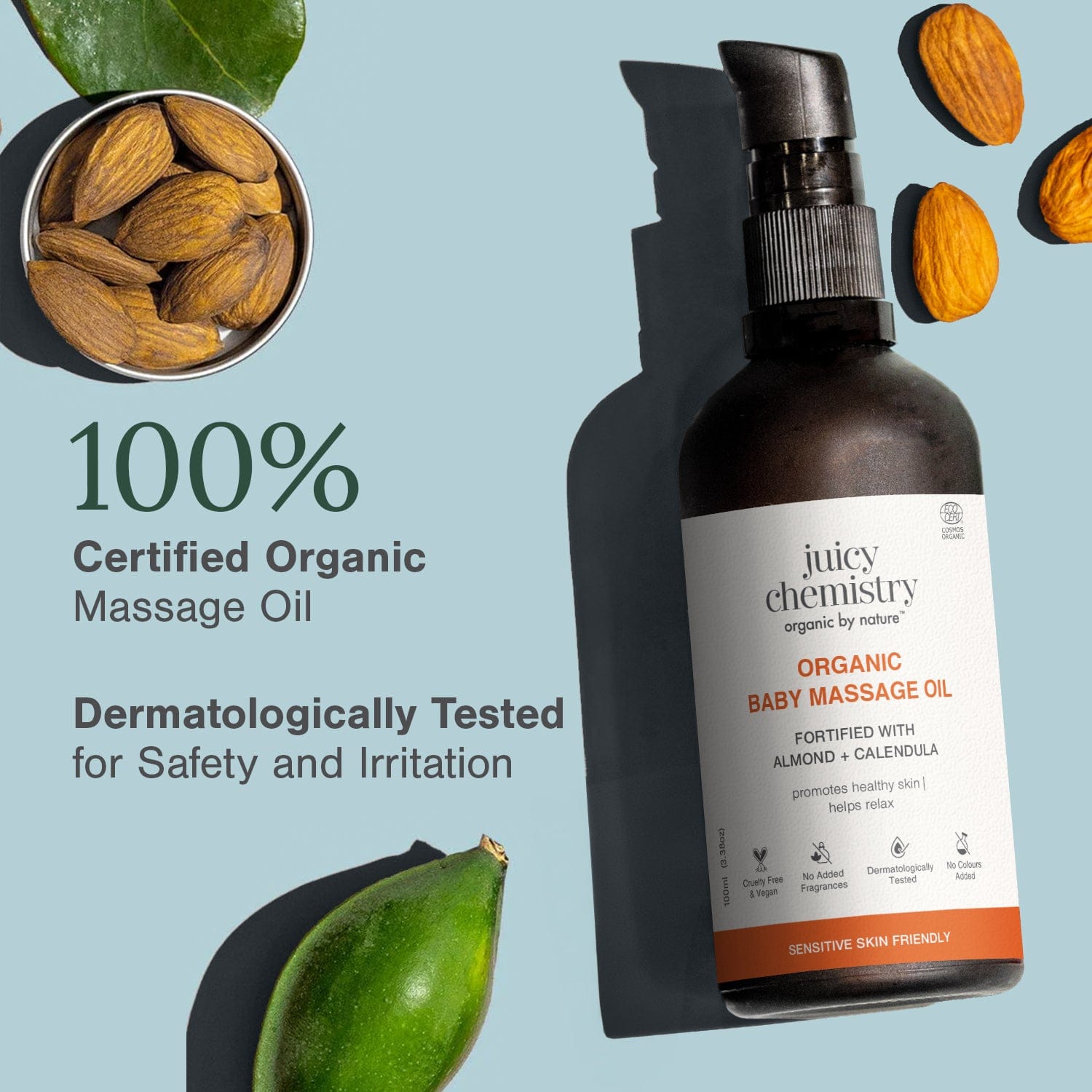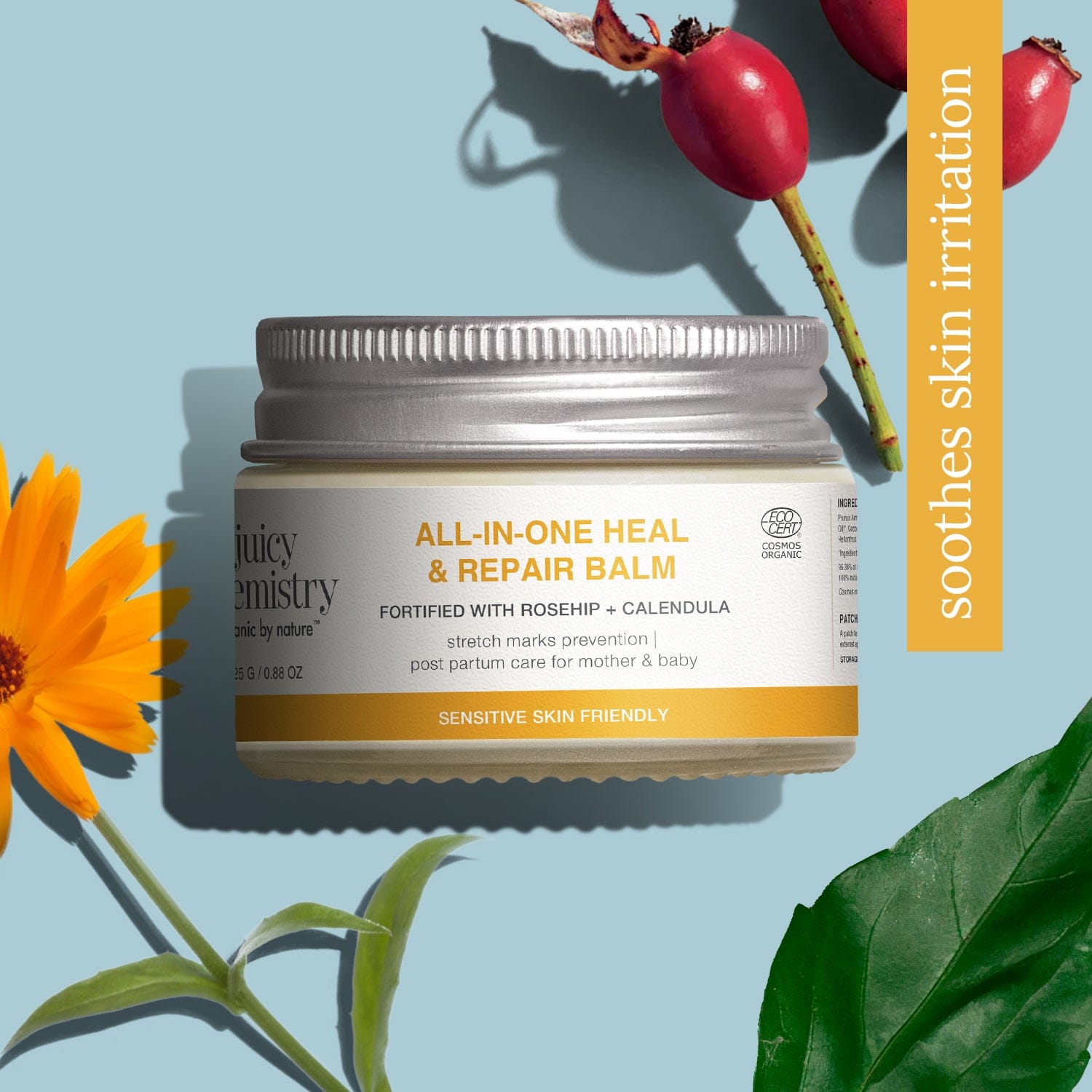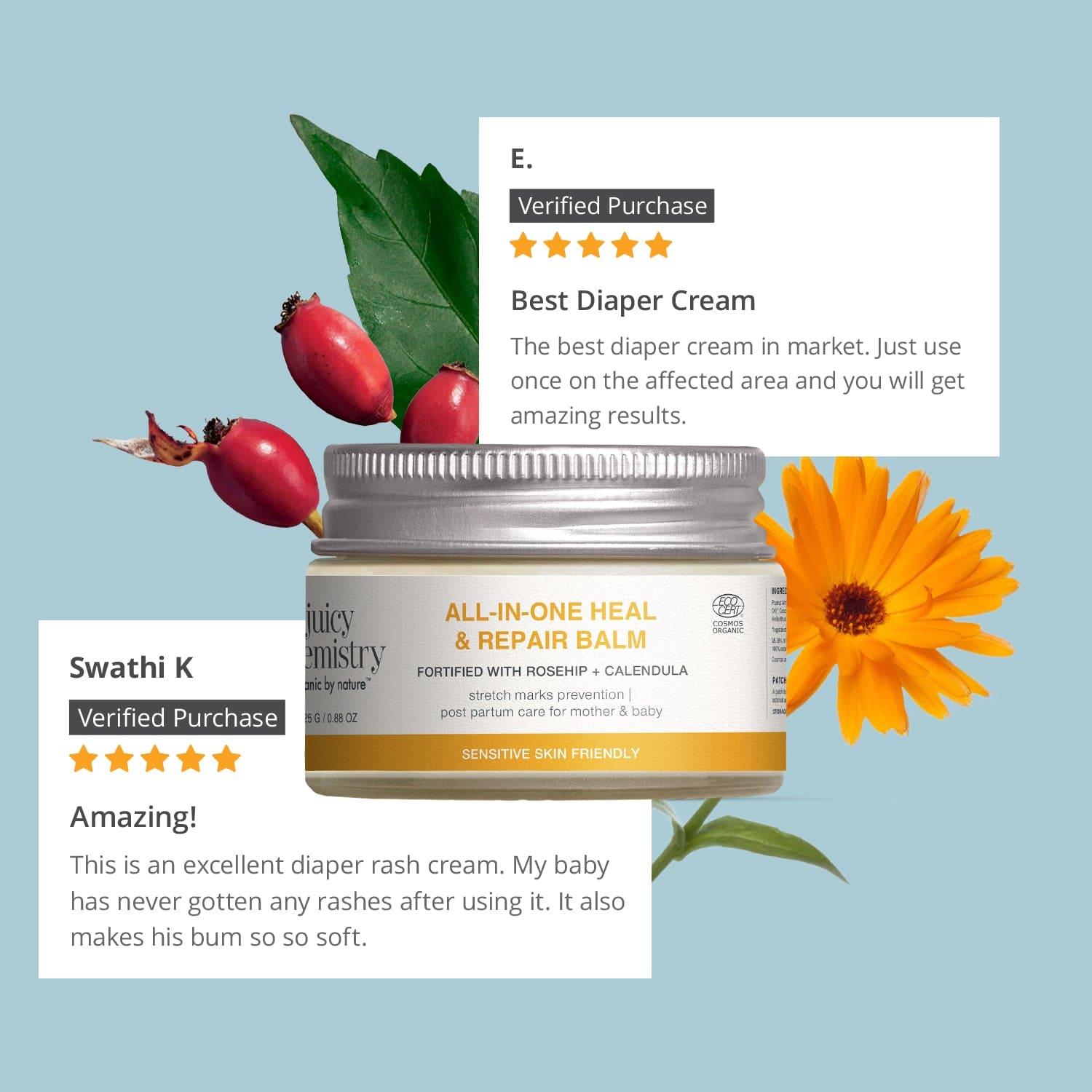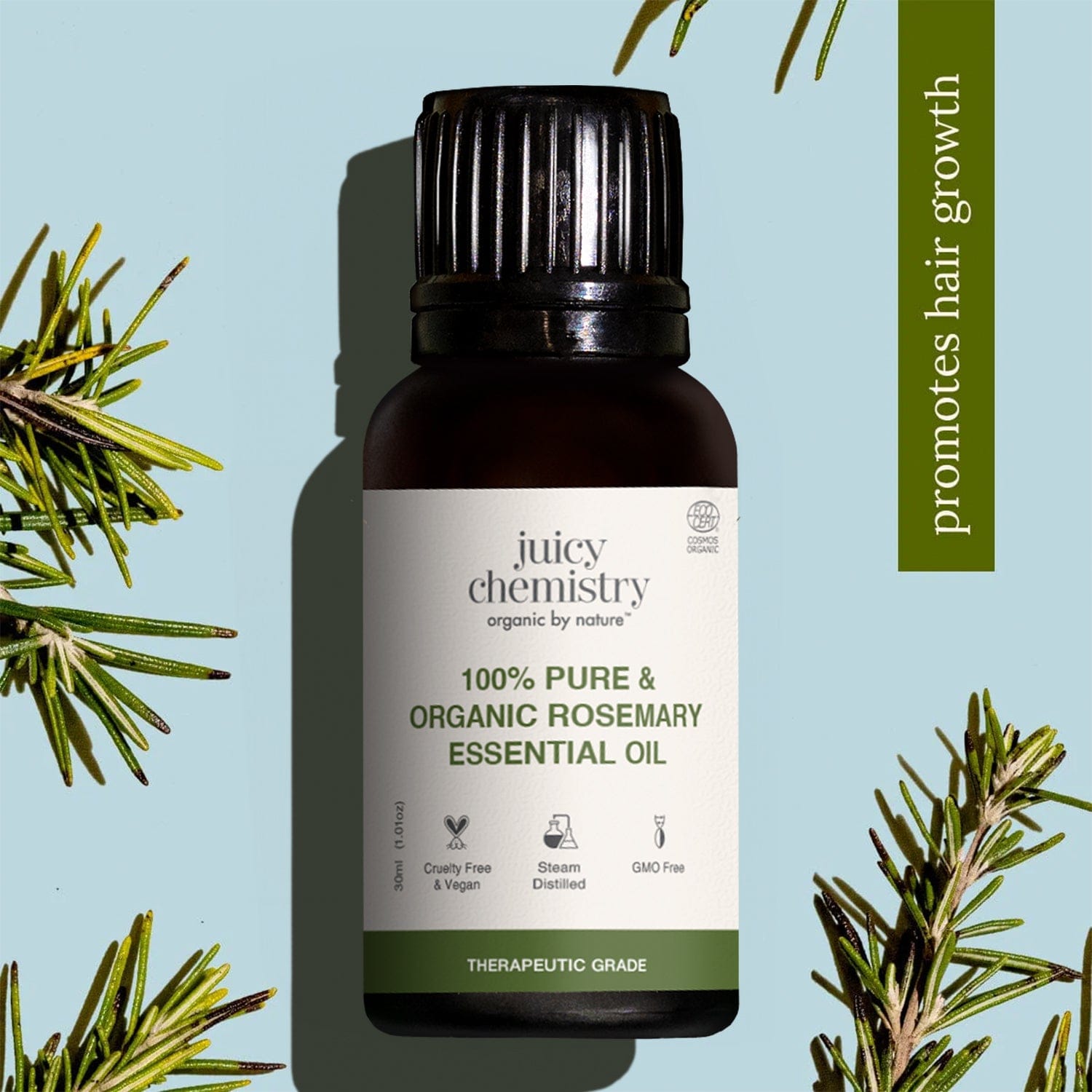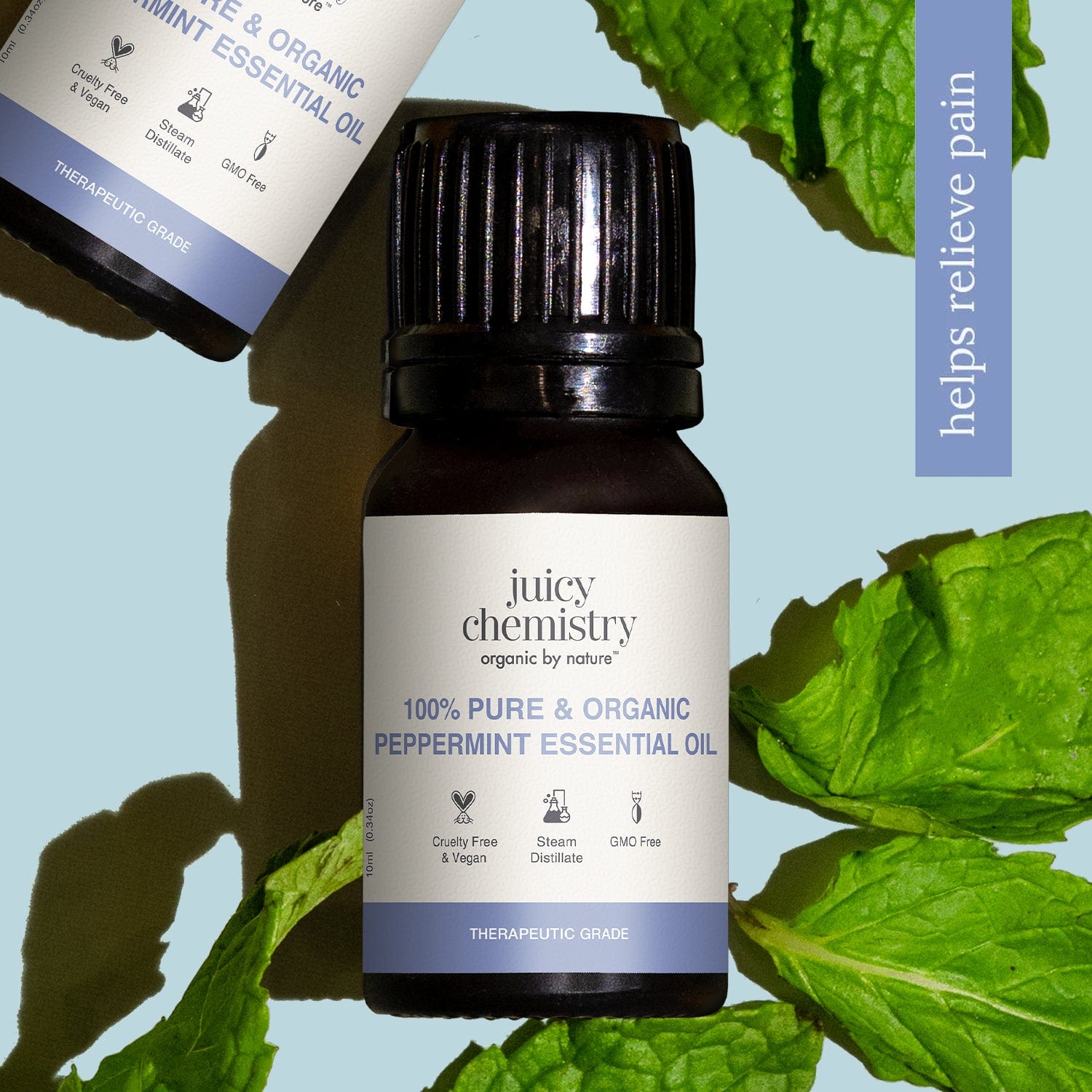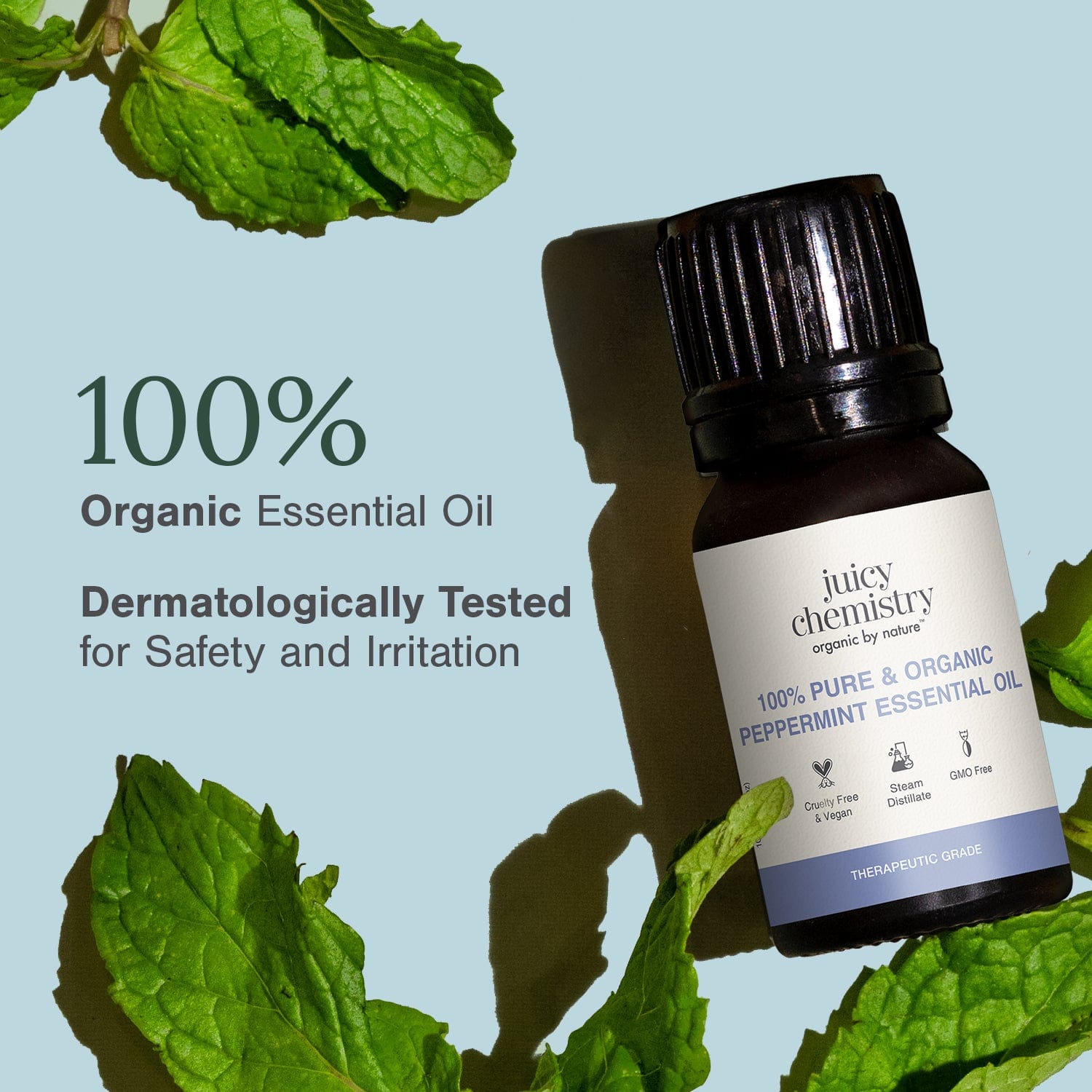Rosemary Oil for Skin
May 07, 2021
Rosemary Oil for Skin - # Advantages & Methods to Utilize Rosemary Oil for the Face
Rosmarinus officinalis, widely recognized as Rosemary, is a well-known medicinal shrub characterized by its aromatic, evergreen, needle-like foliage and purplish-blue flowers. When you crush the leaves of this plant between your hands, it releases a warm, woody fragrance that can instantly elevate your mood and soothe your senses.
The oil is extracted through the steam distillation of rosemary leaves, capturing the plant's essence and the same refreshing aroma as the herb itself. Beyond its delightful scent, Rosemary has become increasingly popular for its benefits in skin and hair care. It is noted for its potent free radical scavenging capabilities, along with its antiseptic and anti-inflammatory characteristics.
According to a study, Rosemary oil is also recognized for its ability to improve short-term visual and numerical memory in individuals.
Chemical Composition of Rosemary Oil

Rosemary oil is known to contain 29 distinct chemical compounds, with the primary components being:
- 1,8-Cineole - commonly referred to as eucalyptol, this natural monoterpene aids in alleviating skin inflammation.
- Camphor - known for its ability to relieve skin irritations, it also contributes to the herb's woody fragrance.
- α-pinene & β-Pinene - these aromatic hydrocarbons are recognized for their antimicrobial and anti-inflammatory effects, assisting in the healing and soothing of the skin.
- Camphene - another monoterpene, camphene exhibits strong antifungal properties and supports overall skin health.
Advantages of Rosemary Oil for Skin & Hair
Rosemary oil provides a wide range of benefits for both skin and hair. Here are some of its key advantages:
- Free radical scavenging - Rich in antioxidants, rosemary oil protects the skin from free radical damage and promotes a healthy complexion.
- Acne treatment - The antimicrobial and antifungal properties of rosemary help manage acne breakouts and diminish the visibility of blemishes.
- Anti-inflammatory - Rosemary oil is abundant in terpenes that help soothe and calm irritated skin.
- Astringent - With natural astringent properties, rosemary oil enhances the texture and firmness of the skin.
- Regulates sebum production - This oil helps balance the skin's sebum production, making it a fantastic option for those with oily skin.
- Reduces puffiness - Rosemary oil aids in improving circulation, which helps decrease fluid retention and puffiness, while also promoting an even skin tone.
- Reverses hair loss - A study indicates that rosemary oil significantly contributes to reversing hair loss and encouraging hair growth.
- Dandruff control - Terpene-rich rosemary oil helps manage dandruff and alleviates itchy, dry scalp by stimulating circulation and strengthening hair follicles.
- Prevents premature greying - Rosemary is known to help restore the natural color of hair and delay premature greying.
How to Use Rosemary Oil for Skin?

Rosemary offers an extensive list of skincare benefits, but it should be used with care! As an essential oil, rosemary is highly concentrated and potent, making it inadvisable to apply it undiluted. It is essential to dilute rosemary essential oil with an appropriate carrier oil within its recommended dermal limits to ensure it is safe for direct application. At JC, we recommend that essential oil(s) should constitute 1% or less of the total mixture. For example, if you are using 100 ml of carrier oil, the essential oil(s) should NOT exceed 1 ml of the total formulation. If you are combining multiple essential oils, their total should NOT surpass 1 ml.
Here’s how you can incorporate rosemary essential oil into your skincare and haircare routines:
-
For skin - Dilute the rosemary essential oil with a suitable carrier oil based on your skin type. Use the resulting facial oil as the final step in your skincare routine both day (before applying sunscreen) and night. Here’s a quick guide to help you select the right carrier oil:
-
If your skin is DRY, dilute the rosemary essential oil with carrier oils like Argan or Avocado.
-
If your skin is OILY or COMBINATION, dilute the rosemary essential oil with carrier oils such as Hemp or Grapeseed.
-
If your skin is NORMAL, dilute the rosemary essential oil with carrier oils like Pomegranate or Jojoba.
-
If your skin is ACNE-PRONE, dilute the rosemary essential oil with carrier oils like Hemp (for oily skin) or Argan (for dry skin).
-
-
For hair - Dilute the rosemary essential oil with an appropriate carrier oil based on your scalp concerns. Apply the resulting hair oil twice a week, leaving it on for 60 minutes or overnight, followed by a wash.
How to Select the Right Rosemary Oil?
Rosemary oil has been utilized for its skincare benefits since ancient times, and there is a vast array of options available in the market. But how do you choose the right one for your needs? Here’s a checklist to guide you:
- Verify the extraction method. Steam distilled rosemary oil is known to retain its nutrient profile after extraction.
- Look for certification - check if the label indicates Certified Organic or Certified Natural.
- If it is certified, ensure it comes from a reputable organization.
- Review the ingredients list; if it only mentions ‘Rosmarinus officinalis,’ then it is a pure, undiluted oil.
- Check the country of origin.
Juicy Chemistry’s Rosemary essential oil is Certified Organic by Ecocert (France) in accordance with the COSMOS V3 standard.
JC’s Product Range Enriched with Rosemary Essential Oil
-
Australian Tea Tree & Basil Toner - This toning mist helps to soothe and calm acne-prone skin while enhancing skin texture.
-
Tea Tree, Neem & Rosemary Organic Cold-Pressed Soap - This versatile soap bar can be used as a cleanser for acne-prone skin and as a shampoo for dandruff-prone scalps.
-
Australian Sandalwood & Myrrh Night Cream -
-
Tea Tree & Peppermint Organic Dusting Powder - A refreshing and calming natural body dusting powder that helps keep skin dry, cool, and combats itch-causing bacteria.
-
Fenugreek, Brahmi, Plantain Shampoo Bar - Our organic shampoo bar effectively alleviates itchy scalp and reduces dandruff severity.
-
Hibiscus, Onion & Bhringraj Shampoo Bar -
-
Baobab, Rosemary, Tea Tree Organic Shampoo - This organic shampoo helps relieve discomfort from an irritated and itchy scalp while controlling hair fall.
-
Chilli, Horsetail & Blackseed Hair Oil - This natural hair oil stimulates the scalp and promotes hair growth.
-
Sacha Inchi, Lemon & Peppermint Organic Hair Oil - Formulated specifically for itchy and dandruff-prone scalps, it helps soothe flaky and irritated skin.
-
Marula, Argan & Lavender Hair Oil - This organic hair oil deeply nourishes and hydrates the scalp and hair, fortifying the scalp and making hair more manageable.
-
Neem Butter, Pumpkin & Ginger Hair Mask - This scalp repair formula effectively addresses dandruff-prone scalps and replenishes hair.
-
Sacha Inchi, Argan & Mango Butter Hair Mask - This deeply nourishing hair mask repairs damaged hair and helps control frizz.
While rosemary essential oil provides numerous benefits, we strongly recommend conducting patch tests and using it cautiously, especially for sensitive skin. Seek professional advice if needed.
References -
https://www.sciencedirect.com/science/article/pii/S2314808X16301890
https://bmccomplementmedtherapies.biomedcentral.com/articles/10.1186/1472-6882-14-225
https://pubmed.ncbi.nlm.nih.gov/24831245/

